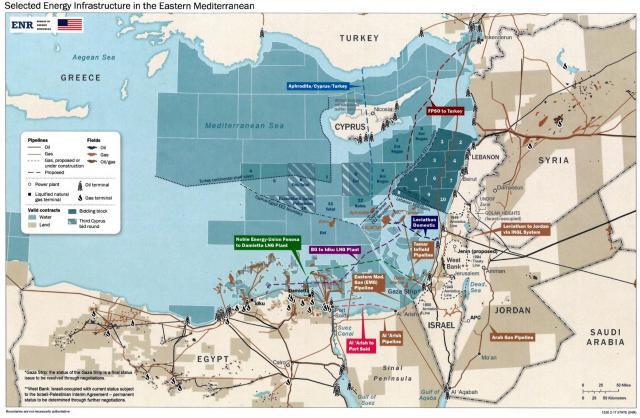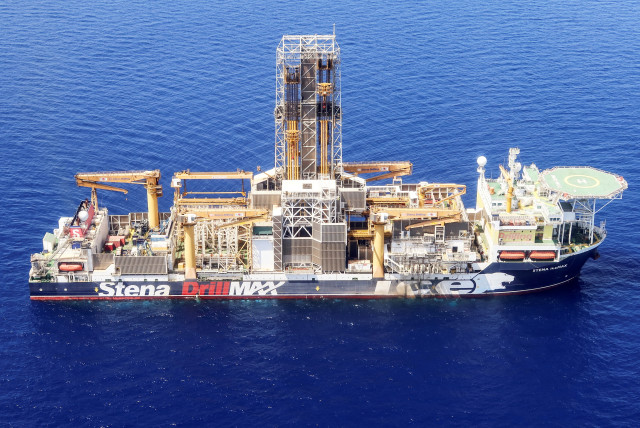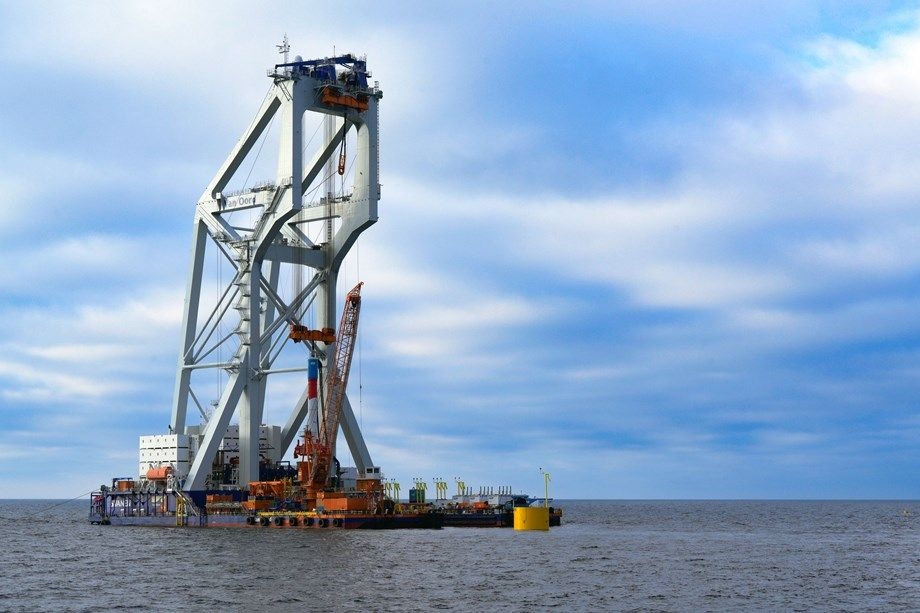Negotiating a dividing line would enable Beirut to fully exploit potential offshore oil and gas reserves.
After almost a decade of intensive diplomatic efforts, the United States has succeeded in brokering an agreement between Israel and Lebanon to start formal negotiations on demarcating their maritime border. Barring a last-minute change of heart in Beirut, the talks are scheduled to begin in early October after the Jewish high holidays.
Under the auspices of a U.S. delegation, representatives will meet in Naqoura at the headquarters of the UN Interim Force in Lebanon (UNIFIL). A UN rapporteur will attend the sessions at Lebanon’s insistence, but his notes will not be filed at the UN due to Israel’s objection.
The focus of US-negotiated talks to finalize an agreement between Israel and Lebanon has shifted to compensation and gas quantities on each side of the maritime border.
Israel and Lebanon have not settled on a final maritime border yet, but their positions are thought to be close enough to start working out an arrangement to either divide gas fields that may end up crossing that line or for financial compensation.
The amount of gas in the area of the Mediterranean Sea that is under dispute is unknown. Israel has rough estimates, but it is looking for more precise figures.
US Special Advisor for Energy Security Amos Hochstein is expected to travel to France in the coming weeks to meet with the leadership of Total Energies, which owns the gas exploration rights in Lebanon’s territorial waters.
Another indication that the talks are thought to be in their final weeks and are on a positive trajectory is that Jerusalem has moved the portfolio for the Lebanon talks from the Energy Ministry to the Prime Minister’s Office.

Israel and Lebanon will establish their own gas rigs five kilometers from each other on opposite sides of the border, Channel 12 reported earlier this week. The rigs will create a “balance of terror” situation to deter Hezbollah from threatening the Israeli rig, as the terrorist group has threatened to do.
In addition, part of the Lebanese natural-gas field will cross into Israeli territory, and Jerusalem will be compensated for it, Channel 12 reported.
Hochstein has shuttled between Beirut and Jerusalem to negotiate a maritime border agreement and met with Prime Minister Yair Lapid last month.
Israel and Lebanon’s maritime border dispute: The story thus far
The dispute between Lebanon and Israel is over the status of an 860-sq.km. triangle in the Mediterranean Sea, amounting to about 2% of Israel’s economic waters. Jerusalem originally agreed to split the area 58:42 in favor of Lebanon.
The US has been mediating between the sides since 2020, but talks broke down in 2021 after four rounds when Beirut sharply increased its demands to almost triple the disputed area to 2,300 sq.km., abutting Israel’s Karish gas reservoir.
The lack of a resolution has made it difficult for Lebanon to tap into its natural gas resources at a time of severe government and economic instability.
Hezbollah leader Hassan Nasrallah has repeatedly threatened Israel in recent months over its development of the Karish reservoir across from the northern shores, claiming that it is in Lebanon’s economic waters even though the gas field is not in the disputed area.

On the other hand Egypt and Jordan have been cooperating with Israel on gas projects for some time, dealing with Lebanon has been problematic.
The maritime border challenges are both legal and geological. The usual first requirement is establishing an agreed land border in order to pin down where it meets the sea. But in this case the relevant border point—Rosh Hanikra/Ras Naqoura—is still technically disputed and terminates in a towering white cliff with no beach.
Moreover, while nearby Cyprus has an agreed maritime border with Israel, its attempts to reach one with Lebanon were stymied by Turkish pressure on Beirut.
In response, an irritated Nicosia decided to draw its line with Israel from the southern end of the line it had hoped to draw with Lebanon.
From Beirut’s perspective, the so-called “tri-point” where the three countries’ exclusive economic zones meet is further south. This contested pizza slice of territory will therefore be discussed in the upcoming talks.
Source: International Agencies +















